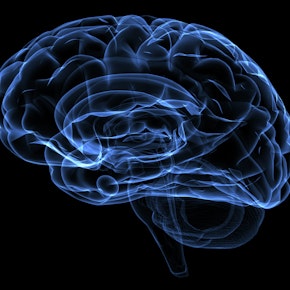Explore
Search results


Hospitals and health systems have a critical role to play in turning health equity talk into action. Learn how the field is using strategic investments to drive innovative solutions forward. Presented by the American Hospital Association.

Climate change, with its global threats to health, could destroy low-lying nations and push as many as 135 million people into poverty by 2030, according to the World Bank. But these catastrophic consequences are not inevitable. Acknowledging that the burdens of climate change have been distributed inequitably, and targeting aggressive action specifically to vulnerable pop...

Artificial intelligence is generating enormous excitement for its potential to predict health risks, speed diagnoses, and guide medical decision making. At the same time, the algorithms that make AI so powerful carry an inherent danger of bias, as some models are known to return lower accuracy results on risk assessment or even exclude certain populations from clinical stu...

The COVID-19 pandemic forced the world to grapple with a long-standing truth: that poor diversity in early and late stage medical research remains a major threat to health equity. Overcoming barriers and challenges to fair representation in research and development will not happen overnight, nor can it be achieved by a single institution. In order to pioneer lasting and su...

The brain isn’t some static entity, cast in resin at adulthood and slowly breaking down as we age. Recent scientific research reveals that it’s an extremely adaptable and plastic organ that can become stronger or weaker — or simply different — according to the stimulus it receives. Are you ready for a neurological tune-up?

Since 2014, Aspen Ideas: Health has welcomed over 700 inspiring women leaders to our stages to share their bold approaches to better health. In honor of Women's History Month, we're taking a look back at some of the many highlights. From medical researchers and clinicians to entrepreneurs and activists, meet 12 change makers who are breaking barriers to reimagine a healthi...

Building on lessons learned from the COVID-19 pandemic, there are significant opportunities to expand the use of rapid testing to address many health challenges around the world- from infectious diseases like malaria and HIV to non-infectious health needs like prenatal care. Learn how Abbott is intentionally approaching product development to democratize, decentralize and...

Nature does not limit its influence only to rural populations. In cities around the world, dense living conditions, lack of green spaces, substandard housing, and poor sanitation allow rats and insects to proliferate and pollution to degrade health. But if certain urban characteristics help spread disease, others can curb it, including strategically placed trees, adaptable...

Setting audacious goals helps to redefine what is achievable in health, medicine, and science. As we deepen understanding of the human genome, unravel the mysteries of the brain, harness the power of AI, and target new vaccines and therapeutics, we push the boundaries of knowledge. Moonshots underway in cancer, nutrition, and health equity could be game changers, taking us...

Eighteen months after a COVID-19 vaccine became available, high-income countries had administered more than 200 doses per 100 people; in low-income countries, the figure was almost 90 percent less. Access to diagnostics and therapies has been likewise constricted, underscoring the imperative of new approaches to global health equity. Investing in local manufacturing and sc...

Nothing demonstrates that health is an industry ripe for growth and change more clearly than the enthusiastic participation of venture capitalists. Far more than in the past, they are committing resources to seed start-up operations, not only in artificial intelligence and data science, but also in the life sciences and health-related services and delivery systems. Recogni...

